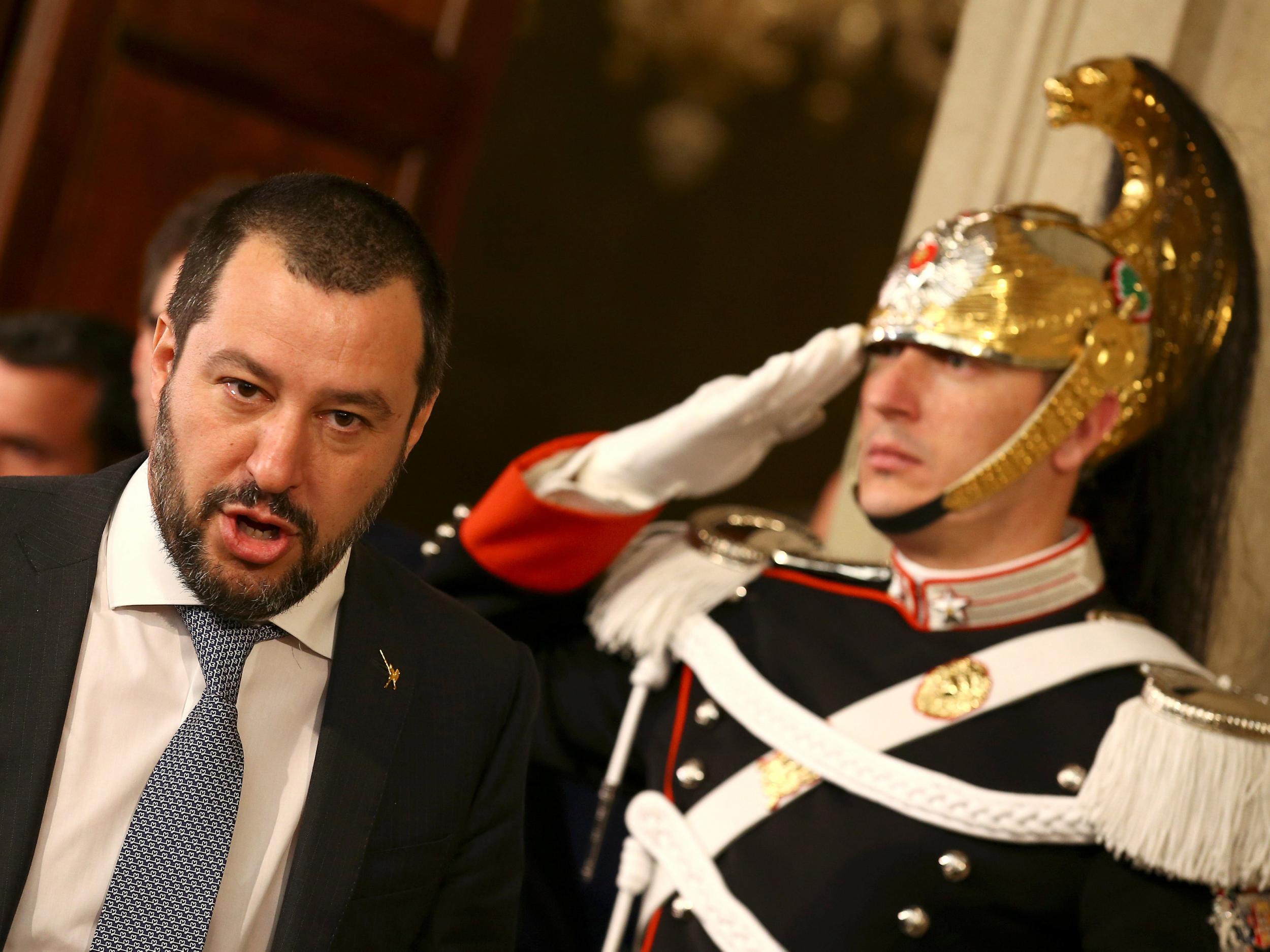Italian far-right party in advanced talks over forming coalition government
Rival populist groups meet with president to propose prime minister after spending weekend in negotiations

Your support helps us to tell the story
From reproductive rights to climate change to Big Tech, The Independent is on the ground when the story is developing. Whether it's investigating the financials of Elon Musk's pro-Trump PAC or producing our latest documentary, 'The A Word', which shines a light on the American women fighting for reproductive rights, we know how important it is to parse out the facts from the messaging.
At such a critical moment in US history, we need reporters on the ground. Your donation allows us to keep sending journalists to speak to both sides of the story.
The Independent is trusted by Americans across the entire political spectrum. And unlike many other quality news outlets, we choose not to lock Americans out of our reporting and analysis with paywalls. We believe quality journalism should be available to everyone, paid for by those who can afford it.
Your support makes all the difference.The leaders of a far-right party have held pivotal talks with Italy’s president as they look to form a coalition government with a rival populist group.
Matteo Salvini, head of the League party, and Luigi Di Maio, leader of the anti-establishment Five Star Movement, held separate meetings with president Sergio Mattarella after spending the weekend locked in negotiations with each other.
The Eurosceptic parties were adversaries before the 4 March national election, which ended in a hung parliament. They have been in negotiations since Thursday in a bid to fuse their differing policies into a workable joint platform to end a 10-week political stalemate.
“It has been a very productive day,” 31-year-old Mr Di Maio told reporters on Sunday, following several hours of talks with his counterpart in Milan. He said they were close to a “historic” agreement, but their choice of prime minister has not yet been announced and confusion remains over who it will be.
The Five Star Movement won 32 per cent of the vote at the election and the League took 17 per cent, making them the two largest groups in parliament.
The leaders both said their talks on Sunday made progress on a policy document which is likely to be tough on immigration and the EU. Mr Salvini has previous pledged illegal immigrants would be rounded up and sent home “in 15 minutes” if he and his allies take power.
The two parties are said to have agreed on who would be prime minister but there has been no word on who would lead the proposed government, with neither Mr Salvini nor Mr Di Maio willing to let the other take the helm.
The far-right leader argues that, although his party has far fewer votes, he represents a centre-right alliance that won the support of 37 per cent of the electorate.
That alliance also includes former prime minister Silvio Berlusconi‘s party Forza Italia, which said during the election campaign it would use the police and the military to round up 600,000 undocumented migrants and deport them if it came to power.
The League and Five Star Movement have been in discussions over nominating an independent figure to lead the government, without allegiance to either party.
On Sunday, Mr Di Maio said the prime minister would be a “political” figure, rather than a non-partisan technocrat.
A 71-year-old economist and university professor, Giulio Sapelli, said on Monday he had spoken to both leaders and would be willing to do the job as long as former centre-right economy minister Domenico Siniscalco was appointed finance minister.
Mr Sapelli said another candidate for the prime minister’s job was also under consideration; law professor Giuseppe Conte.
The president reminded both parties in a speech on Saturday that the constitution gave him the final word on nominating a premier and he was not obliged to accept their recommendation.
If Mr Mattarella is satisfied with their choice, Italy could have a government in place by the end of the week. But should no agreement be reached, new elections are likely.
The president, normally a low-profile figure, has warned recently about the importance of Italy running sound public finances and maintaining its traditional pro-European Union positions.
Both Five Star and League are hostile to EU budget rules, and while the former has moderated its stance on Europe, League is more confrontational and says it wants Italy to leave the eurozone as soon as politically feasible.
On Sunday, a small party in the centre-right electoral alliance, the right-wing Brothers of Italy, said it may support the nascent government in parliament, so long as the prime minister was an acceptable figure and not from Five Star.
A coalition involving Five Star and League would have only a narrow majority in the upper house, meaning the support of Brothers of Italy’s 18 senators would make the bloc less vulnerable to possible defections.
Join our commenting forum
Join thought-provoking conversations, follow other Independent readers and see their replies
Comments